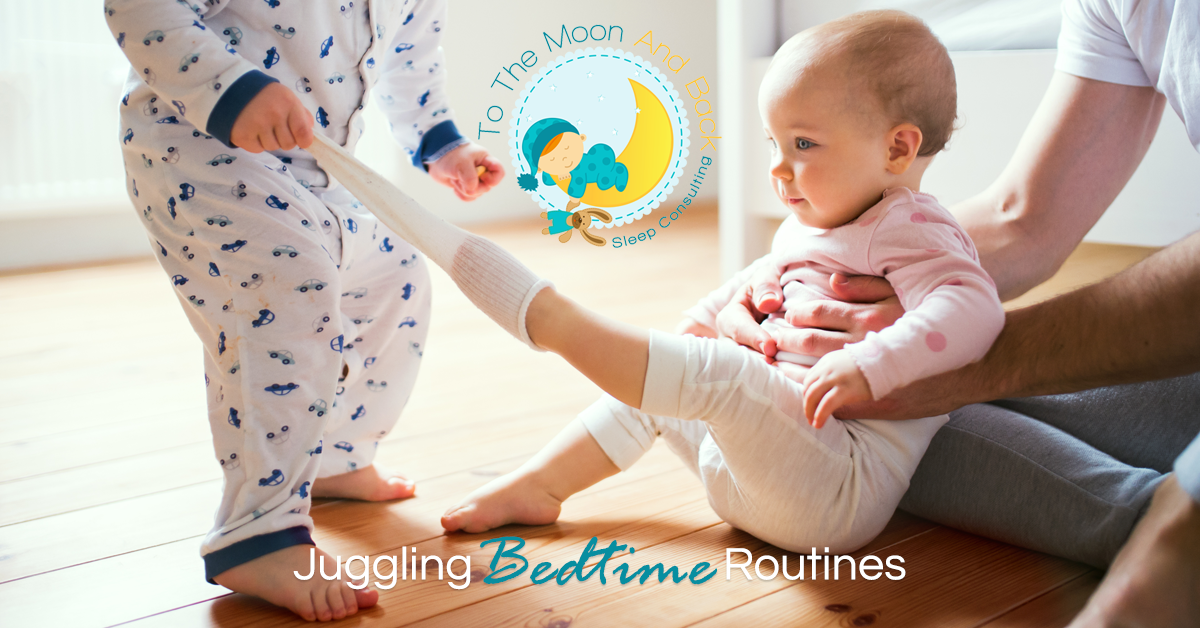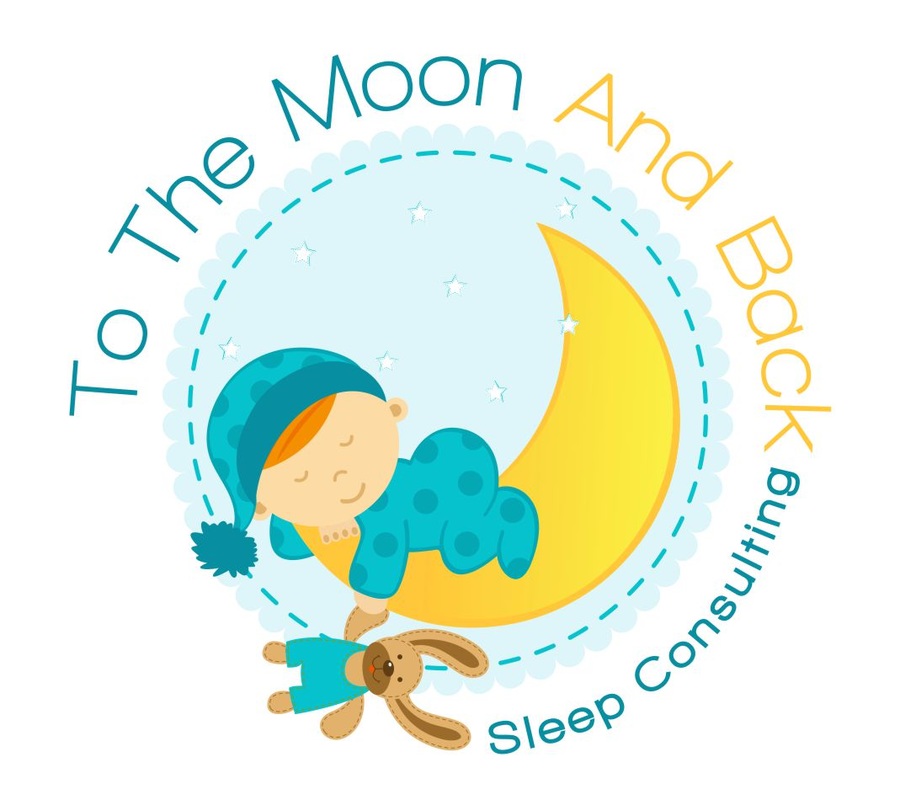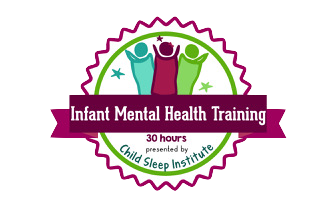|
Is your little one waking up in the middle of the night? No, no, not like that. I mean, like really waking up. Waking up and staying up. For, like… hours. If you’re the parent of a baby or toddler who’s dealing with segmented sleep, you know exactly what I’m talking about. This isn’t the middle of the night. “Go in and comfort your little sleeper for ten minutes until he gets back to sleep” wake up. This is a full-blown 3:00 a.m. dance party. It’s got a few names. Segmented sleep, bifurcated sleep, split nights, and it describes a situation where your little one sleeps for a long stretch, then wakes up happy and energetic in the middle of the night and stays that way for an hour or more. Slit Nights aren’t a new or unnatural phenomenon. Back before the widespread use of the electric light bulb, people would regularly sleep for a few hours, wake up for another hour or two, then go back to sleep. They’d use the time to read, smoke, pray, and have sex (not necessarily all at once), and then after an hour or two, they’d get back into bed and sleep until morning. (Apparently, it was also a typical time for visiting one’s neighbours. Not to hate on the old days, but if my neighbours came over unannounced at three in the morning, oooohhh, things would get biblical.) Nowadays, however, the vast majority of us go to sleep at night and, hopefully, close our eyes and sleep straight through until morning. But let me guess… your kiddo didn’t get the memo? Split nights are actually a pretty common issue. Baby goes down at 7:30 at night, wakes up at 3:00 in the morning, parties her ass off for an hour and a half, then goes back to sleep, apparently careless about the groggy, miserable day she’s set her parents up for. So let’s take a quick look at why this happens, and then we’ll learn how to solve the problem. Why Do Split Nights Happen? There are two major drivers when it comes to sleep. First, there’s our circadian rhythm, which is our natural tendency to fall asleep when it’s dark and wake up when it’s light. Then there’s our homeostatic sleep drive, commonly known as sleep pressure, which builds up over the time we’re awake. So ideally, over the course of the day, sleep pressure builds up, then at bedtime, when the pressure hits the sweet spot, baby puts her head down and goes to sleep. Then, as that sleep pressure begins to subside, circadian rhythm takes over, and baby stays asleep until morning. In the case of a split night, we could be looking at one of two reasons why they’re waking up. ● Your baby or toddler is not getting to bed early enough, OR… ● She is going to bed too early. Now before you pitch your phone out the window at that seemingly paradoxical explanation, check this out. How to Fix Split Nights? If your little sleeper is getting to bed too late, if too much sleep pressure has built up, the brain has this instinctive response that says, “Hey, you’re tired, but you’re not sleeping. I’m guessing that’s because there’s a carnivorous apex predator around, so we’d better get ready to make a break for it,” and then starts upping the cortisol levels. The brain means well, but it’s a little behind the times on our need for lion alerts. So this can make it tough for baby or toddler to get to sleep at bedtime since that cortisol’s got them a little bit jacked. It can also cause a full wake-up at the end of a sleep cycle, which commonly happens around 2 or 3 in the morning. Ugh. If this is the case, you’re one of the lucky ones. Treat this like any other nighttime wake-up, reassure baby that it’s still bedtime, comfort her and let her get back to sleep on her own, and consider moving bedtime up a bit over the course of a few nights. But then there’s the alternate scenario. What if your little sleeper gets to bed too early? In a situation where your baby or toddler’s getting lots of quality daytime sleep and going to bed early, it’s possible that there’s not enough sleep pressure built up to keep him sleeping until his circadian rhythm takes over and helps him sleep through the rest of the night, so up he gets. And now that there isn’t as much sleep pressure, and their circadian rhythm doesn’t have the horsepower to get them to sleep on their own, suddenly they’re up and active for an hour (or three!) while that pressure builds back up. Now, I’m all about early bedtimes. Too little sleep is a much bigger problem than too much. But suppose your baby or toddler's experiencing this kind of split-night sleep. In that case, it’s worth looking at their schedule and doing a little fine-tuning to ensure that you’re hitting the optimum sleep pressure right at the same time that baby’s going to bed for the night. I know plenty of situations can arise where you’ll want to get baby to bed a little early. For example, if she had a day of lousy naps and is clearly tired half an hour before bedtime, it’s the right move to get her to bed ahead of schedule. But try to avoid putting your little sleeper to bed early, more than one or two nights in a row. We want to prevent over-tiredness, but we also don’t want them in the crib at night for more time than they’re actually capable of sleeping. So if your baby or toddler's had a tough day and didn’t nap well, it’s fine to get her to bed a little early since that sleep pressure is likely already built up, but try to get her back onto the regular schedule starting the next morning, including her wake-up time. I know that this can all start to sound like an immaculately choreographed ballet. In some ways, it can be pretty complicated. Still, the more you understand the nuances and know where to make those minor adjustments, the better your baby or toddler will sleep. The less they’ll run into these regressions, setbacks, and interruptions. One final thing to consider if you’re getting ready to tackle this situation. This is not likely to be an overnight fix. Once your little one has gotten into this habit, getting them out of it can take some time. Like any attachment or dependency, overcoming it is an incremental process, and it’s likely to meet with some pushback, so if and when things get tough, remember your goal. You’re giving your little one the skills they need to sleep soundly through the night, and that contributes to their well-being in so many different ways. So stay consistent, be patient, and before too long, you and your little sleeper will both be enjoying full nights of deep, restful sleep. If you are having trouble with your child's schedule and are unsure what it should look like get our Free Sleep Needs Chart. It will help you determine wake windows, nap lengths, number of naps, bedtimes, along with wait times for night time interventions. AuthorErin Neri - Certified Pediatric Sleep Consultant and Owner of To The Moon and Back Sleep Consulting since 2016.  Once your baby reaches six months old, nighttime feedings often become less about nutritional necessity and more about comfort and habit. This is an ideal time to begin transitioning your baby’s calorie intake from night to day. Understanding the biology of how a baby’s body regulates calorie needs can help make this transition smoother and ensure that your baby continues to thrive. The Role of Caloric Intake in Baby’s Growth Biological Basis of Caloric Regulation Babies are excellent at self-regulating their calorie intake. Research shows that, much like adults, if they consume fewer calories at one point in the day, they tend to compensate by eating more at another time to meet their energy requirements. This innate ability is crucial as it helps maintain their growth and development trajectory. Caloric Needs and Development As infants grow, their energy needs per pound of body weight decrease, but the total amount of calories they need increases as they get larger and more active. By the time a baby is six months old, they are typically ready to start solid foods, which helps them meet their increasing nutritional demands. Transitioning Nighttime Calories to Daytime Step 1: Calories Missed at Night equal Calories Made Up During the Day When we begin to sleep train, it is often recommended that we reduce or eliminate all nighttime feedings. This will help ensure that the baby is not confused by the new expectations in the night and learns to sleep through without consuming calories. Eliminating nighttime feeds often concerns parents, but the reality is that the baby’s body will demand this calorie deficit to be made up the next day. Usually through more oz in a bottle, a more extended nursing session or more solid food at each meal. It’s not about pulling nighttime feed but more about reorganizing calorie intake. Step 2: Increase Daytime Feeding Opportunities Offer more frequent daily feedings to compensate for the reduced calorie intake at night. This can include more opportunities to breastfeed or bottle-feed and introducing nutrient-dense solid foods if your baby is ready for them. Step 3: Observe and Adapt Monitor your baby’s response to these changes. Look for signs of hunger and fullness, and be flexible in your feeding schedule. Babies may need time to adjust their hunger cues, so pay close attention to their needs. Step 4: Establish a Consistent Routine As your baby begins to adapt, establish a consistent daytime feeding routine. This helps set their internal clock to expect nourishment during the day rather than at night, aiding in better sleep patterns for both babies and parents. The Science Behind Calorie Shifting The concept of shifting calorie intake is backed by understanding that a baby’s metabolic rate is adaptable. During the first year of life, an infant’s metabolic rate is highly responsive. This adaptability ensures they can meet their energy needs through varying feeding patterns. As nighttime calories decrease, their body adjusts to absorb and utilize more nutrients during the day. This is why consistent daytime feeding becomes crucial in maintaining adequate growth and nutritional status. Ensuring Adequate Nutrition As you work on transitioning your baby’s feeding schedule, it’s essential to ensure they receive a balanced intake of nutrients. If you’re introducing solids, include a variety of foods to cover the nutritional spectrum, such as iron-rich foods, which are important at this stage of development. Conclusion Transitioning your baby from night to day feedings is not just about reducing nighttime interruptions — it’s about aligning their eating patterns with their natural developmental changes. By understanding the biological science behind calorie regulation and providing appropriate nutrition during the day, you can help facilitate this transition smoothly, ensuring your baby continues to receive the energy they need to grow healthy and strong. References:
AuthorErin Neri - Certified Pediatric Sleep Consultant and Owner of To The Moon and Back Sleep Consulting since 2016. If you’re reading this, you likely have a little one who’s been falling asleep in an awkward position. You may have heard that it can be an issue and are looking to learn how to deal with it ahead of time. You may also be oddly interested in the most random blog post topics you can find online. Either way, I will do my best to ensure you walk away from this post feeling like you got some serious value out of it. So your baby has learned to stand up! Congratulations on this wonderful milestone! It’s such an exciting time to be a parent, and this is such a massive step into the world of development that’s coming your way very soon. Many babies have issues when they first learn to stand up; they haven’t learned to get back down yet. During the day, this doesn’t present much of an issue. Your little one can spend all day practicing going from standing to seated while you’re next to them and helping them through it. But once nighttime rolls around, this becomes a whole other issue. I know the Catch-22 this puts parents in, believe me. On the one hand, you can’t just leave your baby in a situation where they might fall down and hurt themselves, but on the other, if you keep going in and laying them down, they don’t learn how to do it themselves. Moreover, they’ll quickly learn that standing up and making a fuss is a pretty effective way to get mom or dad back into their room and pay attention to them. So there’s a fine line that we need to walk to help baby figure out how to solve this little situation they find themselves in without creating a bad habit that could sabotage their sleep. If your baby hasn’t started this behaviour yet, let me warn you: It’s frustrating—more so than the average middle-of-the-night wake-up—because the solution is so totally obvious. You’ll likely find yourself saying, “Just lie down, already!” more than a few times before this gets resolved. As with all parenting, patience is essential. Keep in mind that your baby may not know how to go from a standing position to a sitting one on their own yet, and they may not realize that sleep comes a whole lot easier when you lie down. Remind yourself of this when they wake you up for the fifth or sixth time in three hours because they’ve woken up and gotten back on their feet again, fussing because they can’t get back to sleep. The quickest way through the first part of the equation is to develop that standing-to-sitting skill, so during the day, practice going from standing to sitting whenever you can. When a baby pulls herself up to a standing position, try putting their favourite toy or stuffie on the ground nearby. Gently encourage them to go from a standing position back down to ground level to get their reward. Once they’ve mastered that skill, however, that second hurdle may still be an issue. They may not realize that sleep is much easier to achieve when lying down. It seems like it should be instinctive, but many things seem that way when you’ve been doing them all your life. When you’ve only been around for nine or ten months, it might not seem so intuitive, so again, patience, mama! We don’t want to create a situation where baby starts relying on you to do the work for her, so avoid repeatedly laying her down when she stands up in the crib. Do it a few times at first to show her what’s expected, but switch to a more suggestive approach that doesn’t involve contact once that’s established. Pat the mattress and use a key phrase, like, “Lay your head down” or “Come lie down, baby,” before too long, they should start to connect the dots and realize that lying down is the best way to get to sleep. Remember, even though it might appear that your little one is fighting sleep sometimes, that’s rarely the case. They want to sleep, but they lack the skills necessary to get there on their own, so help them figure it out without doing the work for them. They’ll take care of the rest as soon as they develop a little confidence and ability. And one last little tip before I leave you! Hats off to all of the single parents out there and the fantastic work they do, but if you’re raising baby with a partner, talk this out with them and come up with a plan that both of you can agree on and follow through with. One parent responding with one set of expectations while another responding totally differently will confuse the baby even further in a situation where they’ve already got a lot to figure out. You will need to respond in the same way for your expectations to be clear, and you’ll see results much quicker if you’re working from the same playbook. As always, be calm, be patient, and be consistent. The hard work now will pay off a thousand times when your little one sleeps soundly through the night and happily goes down for naps during the day. AuthorErin Neri - Certified Pediatric Sleep Consultant and Owner of To The Moon and Back Sleep Consulting since 2016. Congratulations, you! If you’re reading this, there’s a pretty good chance you’ve either just welcomed a new addition to your family or are planning on doing so pretty soon.
Welcoming a new baby into the family is an exciting time. Still, it can also bring about a mix of emotions for your older child, especially toddlers. It’s essential to navigate this transition with care and consideration to ensure a smooth adjustment for everyone involved, so today, let’s explore some strategies for introducing your new baby to your toddler and prepare you for some potential challenges that may lay in store. Embrace a Little Bit of Jealousy: Accepting that your toddler may experience feelings of jealousy is the first step toward fostering understanding and empathy. Don’t attempt to stifle or suppress these emotions. Acknowledge, validate, and reassure your toddler that their love and importance within your family unit haven’t diminished. Encourage open communication and be available to listen, really listen, to their concerns. Set Clear Expectations: Maintaining boundaries is essential during this transition period. Clearly communicate your expectations to your toddler, explaining the new dynamics and what is expected of them as an older sibling. Frame these expectations positively, emphasizing the importance of their role in welcoming and caring for the new baby. Encourage them to participate in age-appropriate activities, such as helping with diaper changes or selecting a toy for their sibling. Toddlers typically love the feeling of responsibility and maturity that comes from helping their parents with a new baby, so do what you can to nurture that older sibling relationship. Prepare for Regression: As your toddler adjusts to their new sibling, it’s common to witness some regression in sleep patterns, behaviour, and even potty training. Be patient and understanding during this phase, reinforce positive habits gently, and provide reassurance when setbacks occur, but remember, you set some expectations and communicated them to your toddler, so while it may be tempting to let them slide back into familiar routines, such as using diapers or sleeping in the crib, it’s important to maintain consistency and encourage growth. Uphold Boundaries: Consistency is key when it comes to maintaining boundaries. While it may be tempting to give in to your toddler’s demands during this time of change, it’s essential to stand firm. Resist reverting to previous practices, such as allowing them to sleep in the crib or returning to diapers. Upholding these boundaries reinforces their role as an older sibling and helps create a sense of stability and routine. Create Special One-on-One Time: I get it; free time isn’t exactly in abundance after you bring a new baby into the house. But it’s essential to carve out moments of individual attention for your toddler. Set aside a little time every day for your older child to engage in activities they enjoy, such as reading a book together, going for a walk, playing a game, or whatever makes them happy. These shared experiences will help strengthen the bond between you and your toddler, reaffirming their importance in your life and reassuring them that the new baby isn’t a replacement for them. This is probably the single most important tip I can give you for preventing feelings of jealousy and resentment, so again, I know you’re probably feeling a little overwhelmed, but make this a priority. Obviously, introducing a sibling is a significant milestone for your family, but it’s particularly uncharted waters for your older child. It will require patience, understanding, and a lot of conscious effort on your part. But by familiarizing yourself with potential challenges, setting clear boundaries, and nurturing a positive sibling relationship, you can create an environment that fosters love, support, and harmony within your growing family. Remember, with time, patience, and consistency, your toddler and new baby will forge a special bond that will last a lifetime. Bringing a new baby into the house is an incredible, exciting but also terrifying occasion, even more so when you have one or two children already. It can bring up a whole lot of questions.
How are the older children going to react to this new baby? Are they going to embrace the role of being an older sibling? Will they turn into jealous clingers who need constant attention? Will their schedule fit with your newborn's naps and feeding times? Most importantly, how is this going to affect the older child's bedtime? Trying to juggle two or three different bedtime routines can be overwhelming if you're not ready for it. Trying to find fifteen minutes to feed your newborn while at the same time trying to get your toddler out of the bath can make you lose your mind. Toddlers just know that you're in a position where you're unable to chase them down and enforce the rules, so they are more likely to take advantage of that weakness. So here are some strategies for those of you who have two or three little people, and are struggling to find a bedtime groove. When I was expecting my first baby, I followed along in the books about every single stage of my pregnancy, I read about what to expect when baby arrives. I learned about anything that I thought I would need to know for that first little bit of baby’s life; I read a lot! Of course, I didn't think much about baby sleep until I realized that my precious little bundle of joy DID NOT KNOW HOW TO SLEEP!!  So, I read more and more about nothing except baby SLEEP! What I wasn't prepared for was the sheer amount of information out there, and how much the "experts" contradicted each other! Even among medical professionals, the number of times I must have read one person say that one thing was an absolute must, then to have another "expert" say that the first was wrong or harmful, was mind-boggling and extremely stressful! As most parents do though, I took that information, analyzed it, filtered everything through a combination of common sense and personal beliefs, and came up with a strategy I was comfortable with. But one thing I was never sure about, mainly because nobody seemed to have a clear answer, was whether I could sleep train while I was breastfeeding or how to sleep train while I was breastfeeding. The primary argument against the idea, so far as I understood it, was that breast milk gets digested faster than formula, and therefore babies who are breastfed need to wake up several times a night to feed. Otherwise, they'll feel hungry throughout the night, be unable to sleep, and potentially suffer from malnutrition. Now, I know that there are different views on this matter, and whichever one you subscribe to, you're probably convinced that you're right. And you might be, assuming of course that you agree with me. I'm kidding, of course. Like most things in parenting, there's not so much of a "right and wrong," as opposed to "right for your child." But there are a few facts that you should know if you're breastfeeding and trying to decide whether or not to sleep train your child. After all, what's the point of sleep training if your baby's nutrition needs prevent them from sleeping through the night? So, here's an interesting fact. |
To The Moon and Back Sleep ConsultingProviding families the tools & support they need to get their little ones sleeping through the night and napping like champs! Everyone has more fun when they are well rested! Visit Wollino - Discount Code: TOTHEMOONANDBACK10
Browse
All
|
All information provided on this website, including texts, images, and other materials, are for informational purposes only and should not be considered a replacement for assessment or treatment by a healthcare provider.
© COPYRIGHT 2016-2024 TO THE MOON AND BACK SLEEP CONSULTING. ALL RIGHTS RESERVED. WAKING GIRL WEB DESIGN
© COPYRIGHT 2016-2024 TO THE MOON AND BACK SLEEP CONSULTING. ALL RIGHTS RESERVED. WAKING GIRL WEB DESIGN














 RSS Feed
RSS Feed








